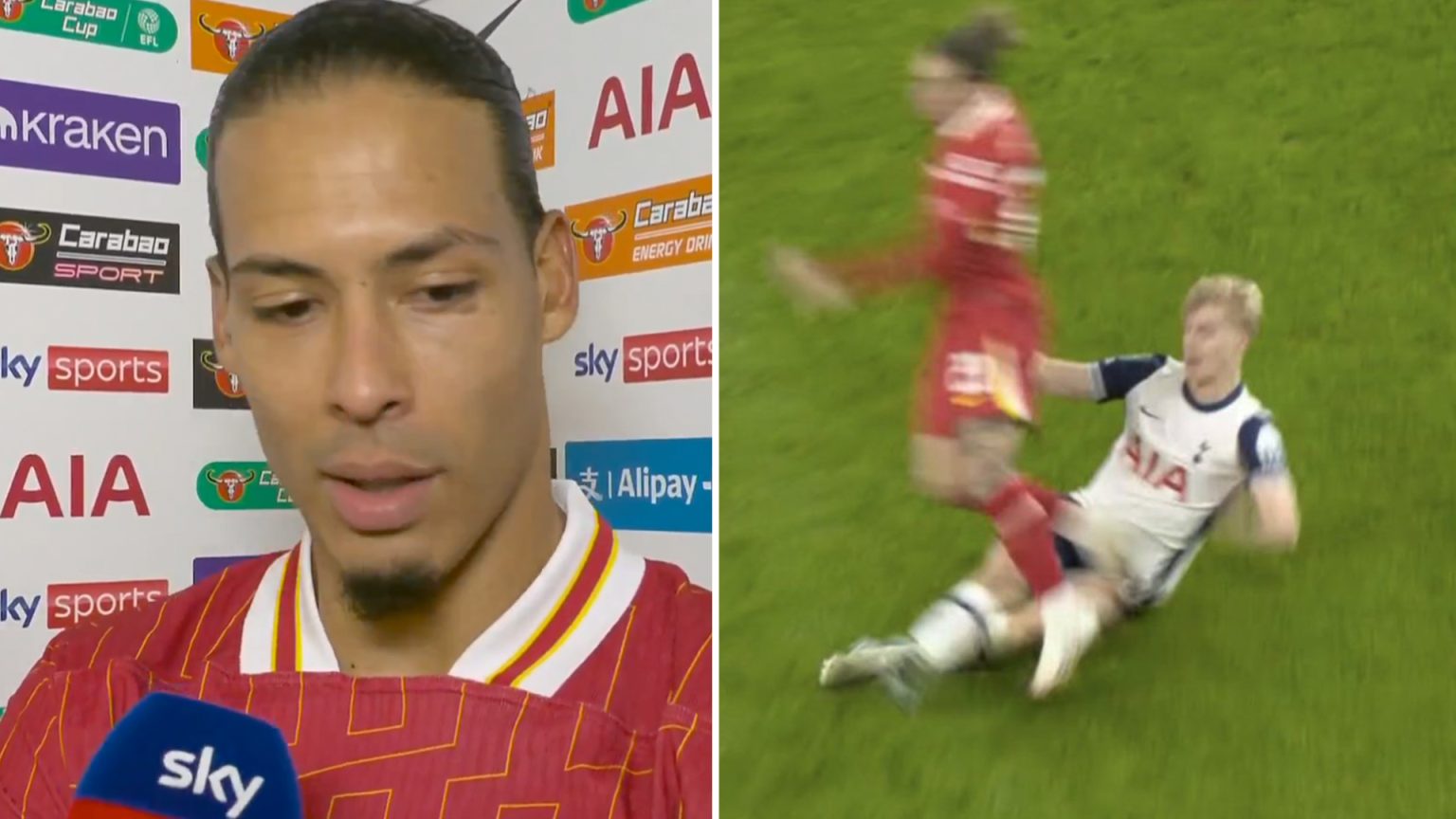Virgil van Dijk’s post-match fury stemmed from a pivotal moment in the Carabao Cup semi-final first leg against Tottenham, where teenage midfielder Lucas Bergvall escaped a second yellow card shortly before scoring the winning goal. The incident occurred when Bergvall lunged into a tackle on Liverpool’s Kostas Tsimikas, a challenge that Van Dijk and the Liverpool bench vehemently believed warranted a second booking. Referee Stuart Attwell, however, played advantage, and with the subsequent attack yielding no immediate result, chose not to retrospectively issue the yellow card. This decision proved crucial as Bergvall, still on the pitch, netted the decisive goal just moments later.
Van Dijk’s contention, supported by the Liverpool coaching staff, was that the tackle was a clear booking offense and that Bergvall’s continued presence on the field directly influenced the outcome of the match. The Liverpool captain argued that the nature of the challenge was blatant enough to warrant a second yellow, regardless of the advantage played. He further emphasized the presence of multiple officials – linesman, fourth official, and VAR – who could have intervened and advised Attwell to issue the card. While acknowledging that the referee’s decision wasn’t the sole reason for Liverpool’s defeat, Van Dijk stressed its significant impact on the game’s momentum and eventual result.
Liverpool manager Arne Slot echoed Van Dijk’s frustration, questioning the referee’s rationale for not brandishing the second yellow. Slot’s exasperation was further amplified by the fact that the game marked only the second time this season his team had failed to score. While he understood the rules regarding advantage, Slot believed the severity of Bergvall’s challenge superseded the advantage gained and should have resulted in a dismissal. The incident sparked heated exchanges on the touchline, leading to the booking of Slot’s assistant coach, Sipke Hulshoff, for his vehement protests.
Tottenham manager Ange Postecoglou, while acknowledging Slot’s disappointment, defended the referee’s decision, citing the rules of the game. He argued that if the advantage is played and the tackle isn’t deemed cynical, a yellow card isn’t mandatory. Postecoglou highlighted that this interpretation of the rules had been consistently communicated to teams, including his own, over the preceding months. He insisted that Bergvall wasn’t merely fortunate to remain on the pitch; the referee’s decision aligned with the established guidelines surrounding advantage and disciplinary action.
Adding to the drama of the evening was a concerning injury to Tottenham’s Rodrigo Bentancur. Early in the match, Bentancur collapsed to the ground unchallenged, appearing to lose consciousness. Teammate Pedro Porro reacted quickly, seemingly checking Bentancur’s airway to ensure he hadn’t swallowed his tongue. Following six minutes of on-field treatment, Bentancur was carefully stretchered off wearing a neck brace and head strap, receiving oxygen as he left the pitch. Postecoglou later confirmed that Bentancur had suffered a head injury but was conscious while leaving the field and had been taken to the hospital for further observation.
Amidst the controversy and concern, a bright spot emerged for Tottenham in the form of debutant goalkeeper Antonin Kinsky. Just days after his £12.5 million transfer from Slavia Prague, the 21-year-old Czech keeper kept a clean sheet in his first appearance for the club. Kinsky expressed his delight, admitting the experience exceeded his wildest dreams. His performance, coupled with Bergvall’s late winner, provided a positive counterpoint to the contentious refereeing decisions and Bentancur’s worrying injury, leaving Tottenham with a slender advantage heading into the second leg.




